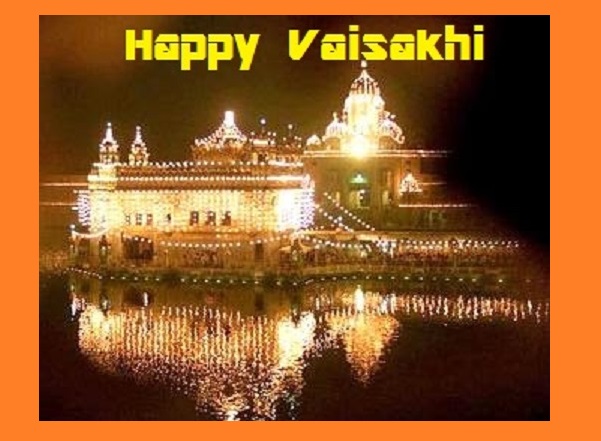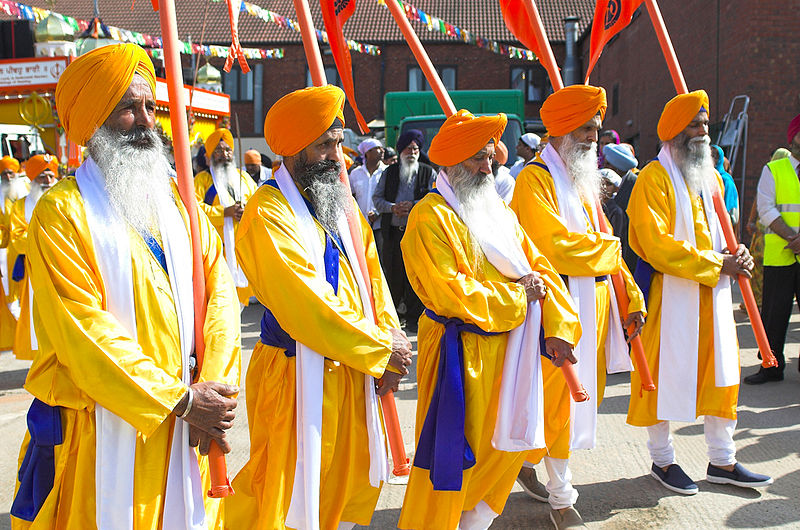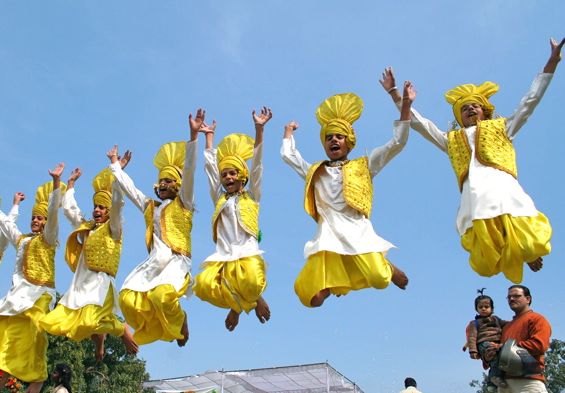Vaisakhi | Baisakhi 2025

Vaisakhi is the harvest festival of the Punjab region, the Punjabi new year falling on the first day of Vaisakh which is the first solar month of the Punjabi calendar, Khalsa Sirjana Divas which marks the birth of the Khalsa in the year 1699, and the Mesha Sankranti festival.
The first day of Vaisakh marks the solar new year. It is New Year’s Day for Hindus in Tamil Nadu, Kerala, Odisha, West Bengal, Assam, Bihar, Uttrakhand, Uttar Pradesh, Himachal Pradesh, Haryana, Punjab, and other parts of India. Vaisakhi is celebrated as Vaisakhadi or Poila Boishakh in West Bengal and Bahag Bihu in Assam, Vaisakhi coincides with the festival of ‘Vishu‘ celebrated in Kerala a day after Vaisakhi.
Why is Baisakhi Celebrated
It is also celebrated as a day of founding the Sikh community known as the Khalsa also called Khalsa Sirjana Divas. It is celebrated on April 13 each year. This day is also observed as a thanksgiving day by farmers whereby farmers pay their tribute, thanking God for the abundant harvest and also praying for future prosperity.
According to the Punjabi calendar, Vaisakhi is also the Punjabi New Year (occurring on the first of the solar month of Vaisakh) based on the solar aspect of the Punjabi calendar which in turn is based on the Bikrami calendar and is used by all communities.
Vaisakhi took on special significance for the Sikh community in 1699, when the tenth of the Sikh Guru-Prophets—Guru Gobind Singh (1666-1708 CE)—invited his disciples to join him in the city of Anandpur Sahib. At this gathering, Guru Gobind Singh formally established the Khalsa Panth.
Suggested Read: Witness Baisakhi In India
Celebration
The first day of Vaisakh marks the solar new year but is not considered to be a New Year across India but only in some regions. Therefore, Vaisakhi coincides with the New Year’s Day (according to the solar new year) celebrated by people across Tamil Nadu, Assam Valley, Kerala, Odisha, West Bengal, the Kumaon region of Uttrakhand, and Mithila region of Bihar (where the Sun-god Surya is honored). It is also celebrated outside India in Nepal and Sri Lanka & Bangladesh, where it is called Pahela Baisakh.

Vaisakhi almost coincides with the festival of ‘Vishu’ celebrated in Kerala a day after Vaisakhi. The festivities include fireworks, shopping for new clothes, and interesting displays called ‘Vishu Kani’. These are arrangements of flowers, grains, fruits, cloth, gold, and money that are viewed early in the morning, to ensure a year of prosperity. The other festival Vaisakhi almost coincides with is Bohag Bihu which is celebrated in Assam a day after Vaisakhi where the community organizes massive feasts, music, and dancing.
Vaisakhi is celebrated in much the same way as Gurpurab, every year The Guru Granth Sahib is carried in the procession in a place of honor, Nagar Kirtan and Sikh Day Parade are held in various parts of the world. Kirtan is a term meaning the singing of hymns from the Guru Granth Sahib, the Sikh holy book. Celebrations always include music, singing and chanting scriptures and hymns and free food Langar is served.

In India Fairs are held to mark the New Year and the harvesting season, there is a lot of joy and enthusiasm in the northern state mainly in Punjab and Haryana. Folk dances are organized into Bhangra is a traditional folk dance that is performed at fairs. Parades, dancing, and singing happen throughout the day.
Celebrations by Farmers
For the large farming community of Punjab and Haryana, Baisakhi marks a New Year’s time as it is time to harvest rabi crop. On Baisakhi, farmers thank god for the bountiful crop and pray for good times ahead. People buy new clothes and make merry by singing, dancing and enjoying the best of festive food.
Cries of “Jatta aai Baisakhi”, rent the skies as gaily men and women break into the bhangra and gidda dance to express their joy. Everyday farming scenes of sowing, harvesting, winnowing, and gathering of crops are expressed through zestful movements of the body to the accompaniment of ballads and dhol music.
In several villages of Punjab Baisakhi Fairs are organized where besides other recreational activities, wrestling bouts are also held.
Happy Baisakhi 2024: Wishes, Messages, Quotes, Images, Facebook & Whatsapp status
